News
-
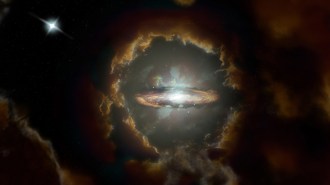 Astronomy
AstronomyThe oldest disk galaxy yet found formed more than 12 billion years ago
A spinning disk galaxy similar to the Milky Way formed just 1.5 billion years after the Big Bang, much earlier than astronomers thought was possible.
-
 Tech
TechA new artificial eye mimics and may outperform human eyes
A new artificial eyeball boasts a field of view and reaction time similar to that of real eyes.
-
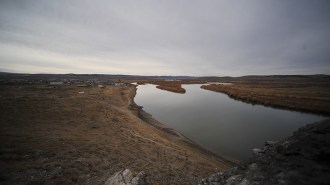 Genetics
GeneticsThe oldest genetic link between Asians and Native Americans was found in Siberia
DNA from a fragment of a 14,000-year-old tooth suggests that Native Americans have widespread Asian ancestry.
By Bruce Bower -
 Humans
HumansBirths in the United States have dropped to a 34-year low
Recessions can influence the birth rate, but births haven’t rebounded yet since the country’s last economic downturn in the late 2000s.
-
 Health & Medicine
Health & MedicineNew data suggest people aren’t getting reinfected with the coronavirus
People who recover from COVID-19 but later test positive again for the coronavirus don’t carry infectious virus, a study finds.
-
 Health & Medicine
Health & MedicineIndoor, high-intensity fitness classes may help spread the coronavirus
As more U.S. states reopen and people return to public life, dance fitness classes in South Korea tell a cautionary tale.
-
 Climate
ClimateDaily global CO2 emissions dropped dramatically as COVID-19 kept people home
Daily carbon dioxide emissions in early April were 17 percent lower than average daily emissions for 2019, thanks to government policies to restrict the spread of the coronavirus.
-
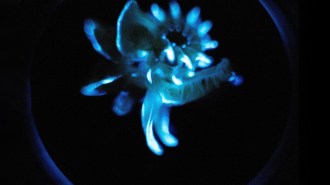 Chemistry
ChemistryHere’s a clue to how this tube worm’s slime can glow blue for days
Mucus oozed by a marine tube worm can glow for up to 72 hours. New results suggest that the light may sustain itself through some clever chemistry.
-
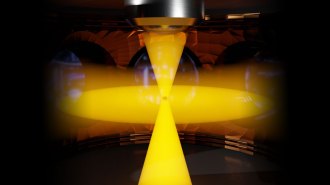 Quantum Physics
Quantum PhysicsPhysicists exploit a quantum rule to create a new kind of crystal
Cold atoms can form crystals as a result of the Pauli exclusion principle.
-
 Health & Medicine
Health & MedicineModerna’s COVID-19 vaccine stimulates an immune response in people
An mRNA vaccine triggers the immune system to make as many virus-blocking antibodies as in people who have recovered from COVID-19, early data show.
-
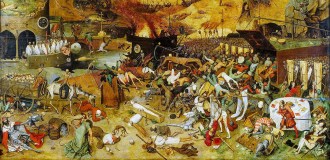 Science & Society
Science & SocietyPast plagues offer lessons for society after the coronavirus pandemic
Starting with the Roman Empire, societies have often dealt resiliently with deadly pandemics.
By Bruce Bower -
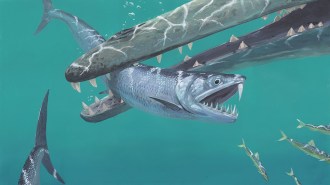 Paleontology
PaleontologySaber-toothed anchovy relatives hunted in the sea 50 million years ago
Unlike today’s plankton-eating anchovies with tiny teeth, ancient anchovy kin had lower jaw of sharp spikes paired with a single giant sabertooth.